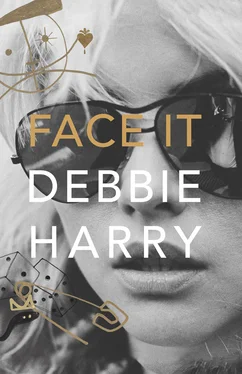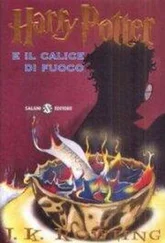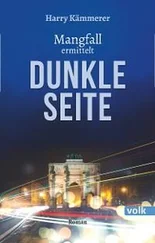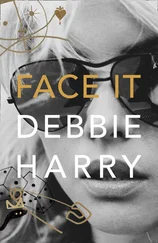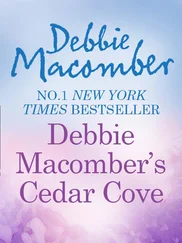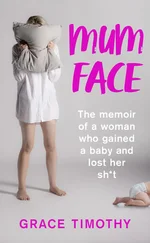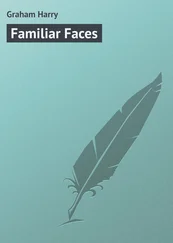The sixties were the age of happenings. It was also the time of a great New York loft scene where so many of these wonderful parties and happenings took place. The lofts down below Canal Street and in Soho were former manufacturing spaces and most were illegal living, but they were very cheap, $75 or $100 a month, so all the artists rented these enormous two-thousand-square-foot spaces. That’s where we played our anti-music music. Charlie played saxophone. Sujan Souri, a jolly, Buddha-bellied Indian man who was a philosophy student, tapped away on the tablas, and Fusai, a countrywoman to Yoko Ono, sort of sang in a very high voice. I don’t know if I banged sticks together or screamed; probably both. Our drummer, Tox Drohar, was wanted for something somewhere—and I surmised he was hiding out, which forced him to change his name and disappear. And then he left to go live with his girlfriend in a little shack in the Smoky Mountains on the great Cherokee reservation.
My boss at the BBC told me I had two weeks’ vacation. I wasn’t allowed to choose the dates and they gave me two weeks in August. It was the hottest, most awful time of summer. Phil Orenstein was an artist working in plastic who made inflatable pillows, furniture, and bags with silk-screened paintings on them. He needed help assembling the straps on some of the bags. So, there I was, in this little plastics factory, tying knots and cutting the ends off with a hot knife. But the fumes from the plastic in that heat were unbelievable. I was seeing spots. I think I lost a piece of my mind from doing it.
But I had those two weeks off, so Charlie Nothing and I decided to take my saved-up $300 and go visit Tox and his very, very pregnant girlfriend, Doris, in Cherokee, North Carolina. We drove down and stayed there for a week and managed to spend my $300. I went back to the BBC covered in mosquito bites, still seeing spots from the plastic fumes and too much pot. But it was a fair exchange: the Smoky Mountains were magnificent and I would have never gone to Cherokee on my own and sat around in rocking chairs with old-timer Indians as they chewed tobacco and spat juice into paint cans.
In 1967, the First National Uniphrenic Church and Bank released an album, The Psychedelic Saxophone of Charlie Nothing, on John Fahey’s record label Takoma. But I had left by then. I also quit the BBC, which I felt was too time consuming. I got a job at Jeff Glick and Ben Schawinski’s Head Shop on East Ninth Street—the first-ever head shop in New York City. Pipes, posters, bongs, black-light bulbs, tie-dyed T-shirts, incense, the usual stuff, only then it was unusual. Right next door was a peculiar storefront with filthy windows plastered with button cards yellowed from age. The crone who had the store lived in the back. Wrapped in her shawl, she looked like an image from a fairy tale. Veselka, which translates to “rainbow,” is a no-frills, twenty-four-hour-a-day Ukrainian eatery next door. When the old woman eventually died they incorporated her store, enlarging their restaurant. The Head Shop was just around the corner from my apartment on St. Mark’s place, so no commute, and it was fun. All the downtown people, the uptown people—in fact, everyone—came in there and it was a really good scene. The Head Shop was an ideal place to meet people who were looking to break some rules.
Ben’s father was a Bauhaus painter and Ben was a sculptor, furniture designer, and builder, easygoing, very cute, and a ladies’ man. We had started going out and we were pretty interested in each other. Eventually he met these guys from California who had a commune, in Laguna Beach I think. He made all these plans to move out there and be with these people and he wanted me to go with him. I really liked him, but I couldn’t drop everything and blindly follow him. I was still working on music and I was really upset that he wanted me to just throw everything away and go with him. For a while I didn’t know if I had made a mistake or not. Well, a few years later he ended up coming back. He’d had this very fancy Volkswagen bus that he had fitted out beautifully—but as soon as he got out there the van sadly got lost in a mudslide.
One day two handsome, long-haired leather boys strode into my domain—two rebels without a cause. These pierced puppies pressed up against the counter, asking to buy rolling papers and flirting like crazy. I liked the older one, whose name I can’t remember now because he was sweet natured, on the shy side, easy to talk to. The other one, the intense one, just stood staring at me, adding the occasional quip, trying to be funny. That one’s name was Joey Skaggs. Joey came back to the shop a few days later without his friend. It was Valentine’s Day and he had come to see the girl with the heart-shaped lips.
He invited me over to his big funky loft on Forsyth Street below Houston. Joey was truly a man for all seasons. He had three bikes that he kept upstairs, real heavy-duty motorcycles, one of them a Moto Guzzi, one of them British; how he got them up those stairs I don’t know. He was also a performance art hustler. One of his more famous shows was on Easter Sunday in Central Park’s Sheep Meadow, when he carried a gigantic cross on his back and dragged it around the park during a peace rally. He had that Christlike look with his long hair and thin body, though the leather pants and biker boots were a bit of a stretch. He made the papers posing atop a large boulder at the edge of the field, draped with his cross, à la Christ on the way to Golgotha.
Joey had a friend who was a filmmaker. I can’t remember his name either, but he was very handsome. One day Joey invited me over and when I walked in, Joey grabbed me and started tearing off my clothes, kissing me, fondling my breasts, playing with my pussy. Then he threw me down on his bed. He got me really hot and I reached to yank off his pants. But he wouldn’t let me. He backed off, stood up, and out from the shadows slunk this dude with a movie camera. There I was, naked, spread, and very wet—and suddenly this thing, this all-seeing eye, is wiggling toward me, voyeur attached. Well, that was a rush. I felt shocked, furious, betrayed, and disrespected, but I was also very turned on. I wanted to knock his teeth in and fuck him at the same time. Scream, cry, get dressed, or go for it? I tried to be cool, silly me. I finally climbed onto a small pedestal and posed like a statue. All of this is on film somewhere. Don’t ask me what happened to the footage. Absorbed into the cosmic ether of the sixties, I suppose.
This was all pretty typical for Joey, actually, who’s maintained himself as a professional media prankster ever since. I’ve had a few laughs at his antics over the years: his fake ad for a dog brothel, which got covered by ABC and won them an Emmy; his Hair Today company, which marketed a new kind of hair implant—using whole scalps from the dead; his fake SEXONIC sex machine, which he claimed had been impounded at the Canadian border; his Bullshit Detector Watch (which flashed, mooed, and shat). And so much more . . .
I can still remember Joey’s loft. That part of the Lower East Side wasn’t gentrified at all in the sixties; it was Alphabet City, gangland, dangerous. So, whenever I went there, after turning the corner off of well-lit Houston onto dark and narrow Forsyth, I’d run down the street and into the building and up those wooden stairs, the darkest, scariest staircase of them all, and I’d arrive at Joey’s breathless from running and climbing. He probably thought I was just hot for him and couldn’t wait. Which was also true.
Then Paul Klein, the husband of a very close friend of mine from high school, Wendy Weiner, invited me to join them in making some music. We would sit around and sing songs together and I would harmonize. It began casually but eventually evolved into a band, the Wind in the Willows, named after the classic children’s book by Kenneth Grahame. I got the job, for what it was worth, as backup singer. Wendy and Paul were Freedom Riders who went to Mississippi to register black people to vote. Stokely Carmichael, who was the organizer of the Student Nonviolent Coordinating Committee, told them, “You can’t share a room in Mississippi without being married and expect not to be arrested,” and so they got married. When they came back they moved to the Lower East Side and we resumed our friendship. I knew I wanted to be a performer—I was still vague on what kind, but at least I knew that.
Читать дальше
